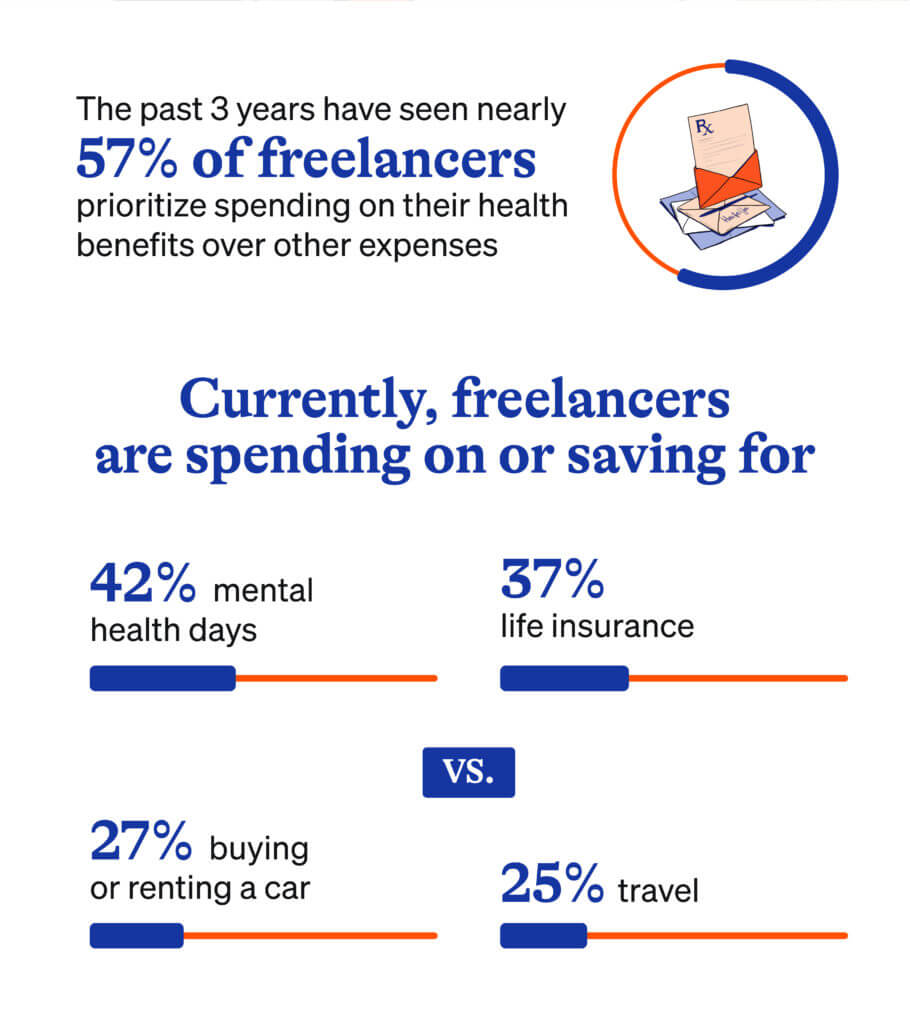NEW YORK — More than half (52%) of freelance workers are expected to remain part of the gig economy — opting out of corporate jobs — until they retire. A recent survey of 2,000 gig workers finds that three in four (75%) are confident their ongoing job will help them reach their retirement savings goal.
That said, 54 percent also feel more pressure than ever to have a certain amount of money saved up before they retire. Seventy-four percent are also saving differently due to the pandemic and recession. Currently, freelancers are spending or saving more for mental health days (42%) and life insurance (37%) than they are for buying or renting a car (27%) and travel (25%).
Conducted by OnePoll on behalf of Everly, LLC, the survey reveals the top three things people love about freelancing. Above all, there’s the freedom of choice for the projects they work on (43%). After that, it’s flexible hours (41%) and being their own boss (40%) topping the list.
As for their biggest pet peeves, respondents cited difficulty building vacation time into their schedule (42%), followed by clients that don’t always pay or pay on time (40%), and paying for health benefits (38%).
Spending habits change with age
Seven in 10 (70%) respondents have changed their financial goals as they’ve gotten older, with 72 percent spending more money on longer-lasting things, and 64 percent cutting back on non-essentials.
This approach can allow gig workers to tackle some of their biggest expenses, among which are a computer, including accessories and maintenance costs (28%), personal expenses such as clothes and a gym membership (27%), health benefits (25%), and a professional website (25%).
The average freelancer aims to retire at 58 years-old and anticipates needing $353,063 for retirement.
“Along with all the perks freelancing offers, one of the challenges is figuring out health benefits, retirement, and life insurance on your own,” says Karna Trautman, Chief Innovation Officer at Everly, in a statement. “When choosing the right type of life insurance, you may want to consider an affordable cash accumulation policy that has flexible payments and a death benefit of five to 10 times your total expenses.”

Many freelancers are putting off doctor’s visits because of cost
While 58 percent of freelancers have health insurance, this varies by industry, with hospitality (78%) and architecture gig workers (76%) more likely to have coverage than those working in education (64%) and healthcare jobs (61%).
Of those who don’t have health insurance, 48 percent haven’t taken proper care of their health because they can’t afford to.
At the same time, 74 percent would switch to a full-time permanent role if the right opportunity presented itself, such as the pay, industry, or job location aligning with their expectations. That includes nearly nine in 10 freelancers (88%) with four to five dependents at home.
“Our research shows only 26 percent feel ‘very confident’ in their family or loved ones’ ability to continue to pay for expenses in the event they lose their income. Universal life insurance can help provide a safety net, as well as cover unforeseen expenses such as medical bills,” Trautman adds.
Survey methodology:
This random double-opt-in survey of 2,000 freelancers was commissioned by Everly, LLC between August 26 and August 31, 2022. It was conducted by market research company OnePoll, whose team members are members of the Market Research Society and have corporate membership to the American Association for Public Opinion Research (AAPOR) and the European Society for Opinion and Marketing Research (ESOMAR).
